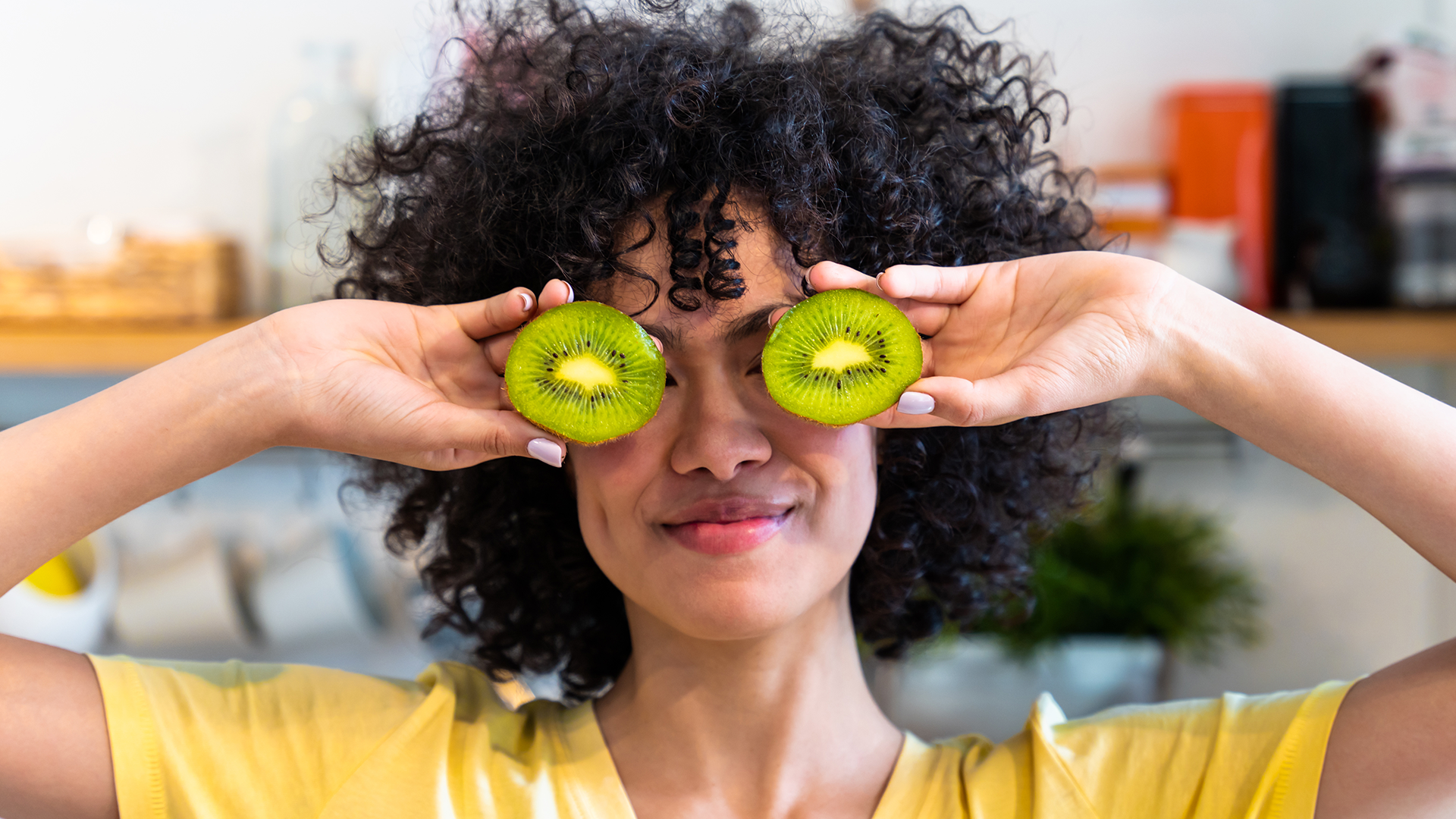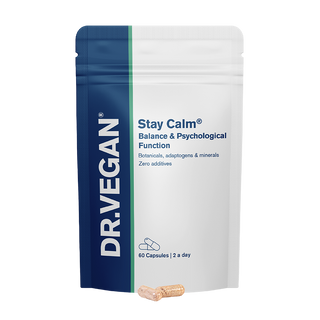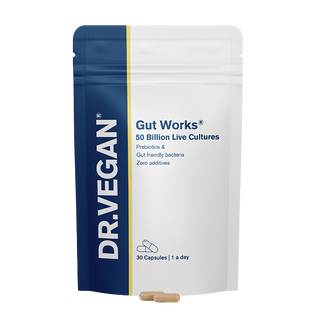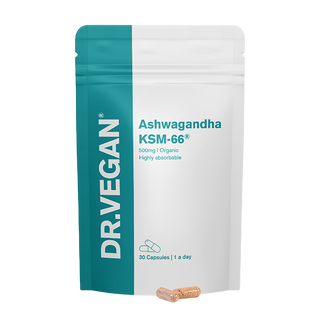Foods and vitamins for stress

Anxiety and stress are a broad spectrum, from mild anxiety to extreme stress, and there are many causes, from everyday stresses of life to poor gut health and our adrenal glands. It's important to understand them all and how our diet can help.
Our nutritionists share the best foods for anxiety and stress, and how our gut and adrenal glands affect anxiety and stress.
Your gut and stress
Our gut health and mental health are connected via the 'Gut-Brain Axis'. Most of the neurotransmitters (our brain chemicals) in our brain are synthesised in the gut before they reach the brain, so improving our gut health is the first area to work on when improving mental health and relieving anxiety.
Create your free Diet Profile
You may also enjoy reading '6 signs of an unhealthy gut' and our nutritionists tips and advice on 'How your diet can improve your mental health'.
Adrenal glands and stress
Our adrenal glands are two glands which sit on top of our kidneys. They produce the stress hormones 'adrenaline' and 'cortisol' in response to stressful situations. They help us to think quickly, move quickly and have a burst of energy. While they're stimulated in response to stress, they're also released after we consume caffeine or nicotine, or when blood sugar levels are unbalanced.
Learn more in 'What is cortisol'.
Too much screen time in front of the TV or a computer, pressure of work or home life, or stressful events can all increase our adrenaline and cortisol. When our adrenal glands become overused and tired, they start to function poorly, which actually exacerbates anxiety and stress.
Find out more in 'How adrenal glands affect stress and anxiety'.
Best foods for stress
The good news is some foods are particularly good at helping our body to cope with stress more effectively. They provide nutrients needed by the adrenal glands and help to calm our nerves.
Wholegrains
Wholegrains such as brown rice and whole wheat are rich in B Vitamins and Magnesium. B Vitamins, especially Vitamins B5 and B6, are needed for the production of adrenaline and cortisol in your adrenal glands. When our diet contains enough B Vitamins, our body reacts to stress in a more favourable way.
Kiwis
Kiwis are rich in Vitamin C, an essential vitamin for stress. A small amount of Vitamin C is stored in the adrenal glands and is released at the same time as our stress hormones. During stressful situations, our immune function can be impaired and the Vitamin C that is released helps to minimise the impact on our immunity, so consuming Vitamin C regularly ensures our body is well protected in stressful situations.
Kiwis also provide a type of fibre that isn't found in many foods which support the growth of probiotics in our gut, especially probiotics that are sensitive to oxygen and can't be taken as a supplement.
These probiotics have a really beneficial effect on stress. They produce B Vitamins required by the adrenal glands and also synthesise our brain chemicals, including serotonin. Serotonin is our happy hormone that helps our body to cope with stress and helping us stay calm, so Kiwis and great for Vitamin C, probiotics, B Vitamins and collectively relieving anxiety and managing stress!
Chia seeds, flax seeds and walnuts
Omega 3, found in chia seeds, flax seeds, walnuts and algae is needed for brain health. Omega 3 works in balance with omega 6 and research has found that too much omega 6 and not enough omega 3 in the diet increases the risk of anxiety. Omega 3 fatty acids are a vital building block of your brain, and their receptiveness to brain chemicals such as serotonin and GABA play a role in sharpening your memory and improving your mood, as well as protecting your brain against decline.
Check out our blog '5 foods to improve your mood'.
Dark Chocolate
You may be delighted to hear that studies show dark chocolate can help reduce stress and anxiety. Chocolate contains flavonoids that reduce neuro-inflammation and death of cells in the brain, as well as improving blood flow in your brain. These flavonoids combine to help improve your moods and deal with stress better.
Cocoa also has a high tryptophan content, which gets converted in your gut into serotonin – the happy hormone. Try to avoid brands with excess sugar as high levels of sugar are counterproductive. Try adding cocoa powder to tomato dishes to enhance their flavour, and look for dark chocolate that has a 70% or more cocoa content.
Green leafy vegetables
Green leafy vegetables are typically rich in Magnesium. Magnesium is a mineral used by the nerves and brain to help you stay calm and relax. It is involved in over 300 processes in your body and one of these is the production of a brain chemical called GABA, which induces calm and relaxation. Magnesium is usually needed for anything that is “tight”, whether it is tight muscles or an uptight mind.
Curcumin & Turmeric
Turmeric is a yellow spice that contains the active compound curcumin which has an anti-inflammatory action in the body. Low-grade inflammation in the body can sometimes be a cause of anxiety. Remember, if you're taking Curcumin & Turmeric, combine it with ginger and black pepper which significantly improves absorption of turmeric.
Green Tea
Green tea contains the amino acid theanine. Theanine increases the level of dopamine in the brain and helps to bring a sense of calm to the mind. This is great for any situation that brings anxiety. Studies show that theanine induces relaxation and calmness and lowers tension.
Supplements for anxiety and stress
Rhodiola
Rhodiola is an Adaptagenic herb. Adaptagenic herbs balance the functions of the body and can help the body to deal with stress.
Rhodiola contains as many as 140 active compounds, of which the most potent two are rosavin and salidroside. One of Rhodiolas’ main benefits is the balancing affect of the adrenal glands which may be beneficial for individuals who suffer from anxiety and stress.
Ashwagandha
Ashwagandha is another Adaptogenic herb which helps the body to manage stress through its active compound, withanolides. These withanolides help lower cortisol levels (your stress hormone) in the body, helping to reduce the feelings of stress and anxiety.
Magnesium
Magnesium is an essential mineral for the production of GABA – the chill-out hormone. Magnesium can become depleted in the body during stressful events and when the diet contains too much sugar and caffeine, as well as among those who smoke.
A Magnesium supplement may be beneficial to individuals with anxiety and stress as research has found that magnesium supplementation can reduce the symptoms of anxiety. You may like to read our blog 'How do I know if I'm deficient in Magnesium'.
Vitamin D
Vitamin D plays a role in brain and nerve health. Researchers have linked Vitamin D deficiency to mood disorders including anxiety. Vitamin D may be especially useful to those who suffer from seasonal affective disorder.
Read our blog: How do I know if I'm deficient in Vitamin D
B Vitamins
B Vitamins are essential for the health of the nerves and the brain, and any deficiencies may cause impaired mental capacity, anxiety and the onset of psychological disorders.
B vitamins are needed for the coating of the nerves which helps the nerve and brain cells communicate with each other. Some B Vitamins may not be consumed in sufficient levels if you're on a plant-based diet and it is not well planned out. Taking a multi-vitamin formula which provides B Vitamins, including Vitamin B12, can ensure you're receiving adequate intake.
You may also enjoy reading how to overcome travel anxiety and 'Nootropics: Everything you need to know'.
Discover our range of vegan vitamins and supplements.
You may also enjoy reading:
- Mushrooms and brain health
- Brain fog: how to clear the mental haze
- Adaptogens that can change your life
- 14 common symptoms of ADHD
- How menopause affects ADHD
Want to hear more from our nutritionists? Sign up to our email newsletter for insights and exclusive offers:




















